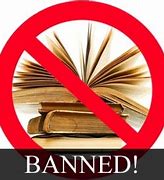
Book Banning? The Hyperbole in Social Media Posts.
America’s most well-known shock-jock Howard Stern can say whatever he wants. It is his protected right to do so. Over the air radio has been regulated for decades. American society decided those many decades ago that some things said or sung are not acceptable to be broadcast over the air waves. Howard Stern is a great example. Many years ago he was on radio stations across America and was known as America’s biggest shock jock. The FCC stepped in, after what seemed like a multitude of violations, and Howard Stern in response left terrestrial, or over the air, radio and went to satellite broadcasting. So what’s the difference? Well, over the air radio is accessible by anybody at any time so long as they have a radio. And we all know how accessible radios are. Be it in our cars, homes, computers, phones, etc. After entering the digital age, we may have virtual complete access to any offensive talk, song lyrics, or whatever we as individuals choose to seek out. But we must do just that, seek it out. With the radio, a child could, without regulation, access it by simply scanning stations on that radio.
Hyperbole in recent posts on social media have brought to the forefront a, not so new, conflict over book banning. It is a difficult situation when deciding when, where, how and why books can or should be banned. Arguments based in political, religious, personal views or experiences, as well as a multitude of other reasons are what these attempts to ban books seem based in. Book banning can have both positive and negative, and sometimes both simultaneous, consequences within our society. One of the biggest negatives would be suppression of information that is vital for society to not only learn from our past mistakes, or historical failures, but also to broaden our own conscious thought in an effort to better ourselves and by proxy benefit society as a whole.
By keeping information available, we not only reduce ignorance but also hinder regression. A positive impact on society might not technically fall in the “book banning” category. Maybe a better description would be “restrictive access.” Where communities decide which restrictions are acceptable in their area. While the public library should not ban books, the public school system should be allowed to control what is in the school system. And this is not to suppress free thought of our school-age children, but to protect them from perverse, nefarious, irrational ways of thinking during a very crucial stage in their mental development. Once they’ve matured mentally, they are able to process these fringe ways of thought. Which might otherwise be confusing and difficult to extrapolate, at least early in mental development, but where exposure to these thoughts is crucial to ultimately understand the world in a more broad sense.
Anyone who believes that books involving masturbation should be in a middle school environment, and there are many school districts that seem fine with this, will never convince me of the appropriateness of this. But conversely, no one will ever be able to convince me that removing the same books from the public library is appropriate. Now, that’s not to say that it should be accessible to everybody. An age-appropriate section could hold these materials. Kind of like how some states require adult magazines be located behind the counter at convenience stores. Communities should be able to decide what is and what is not appropriate for their area. But we must not tell others they’re wrong simply because they might not agree with us. Focus on your beliefs and what you can as an individual or collectively, with like minded individuals, control. But at the same time, you must respect others personal choices and cannot seek to outright ban any and everything related to a particular subject. That would be tyrannical.
Book burning. Now that is an entirely different subject. A private citizen, in a free society, should be allowed to burn any book they choose to. However, the government should not, under any circumstance, be allowed to burn any book. What’s the difference? Well, another citizen burning a book does not limit another’s access to a copy of that book. I can purchase my own copy and read at my leisure. Or, checkout a copy at the library. Now if another citizen took my book in order to burn it because of their own beliefs, that would be theft and destruction of private property. But if the government is allowed to dictate which books are burned, we no longer have the liberty to buy our own copies of these books to read. Because the government would likely also pass a law giving it sweeping powers of regulation on books deemed as “worthy of the bonfire.” Likely spearheaded by bureaucracy with no direct recourse for citizens.
In a free society, we as individuals must be allowed to decide what books we read, what books our children read or have access to, and the extent to which our government and its’ institutions have control over all information. Otherwise, ignorance becomes common and “the powers that be” become all powerful.